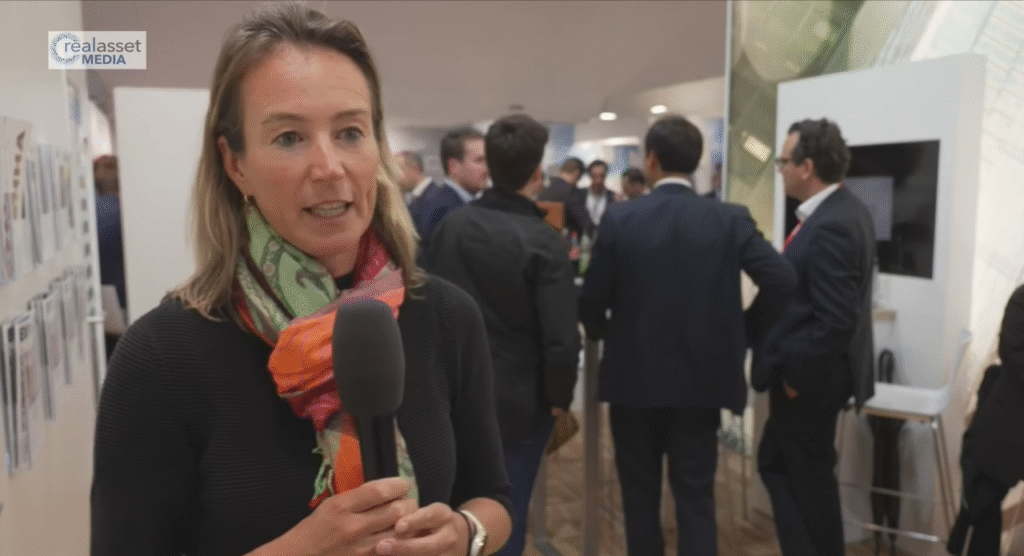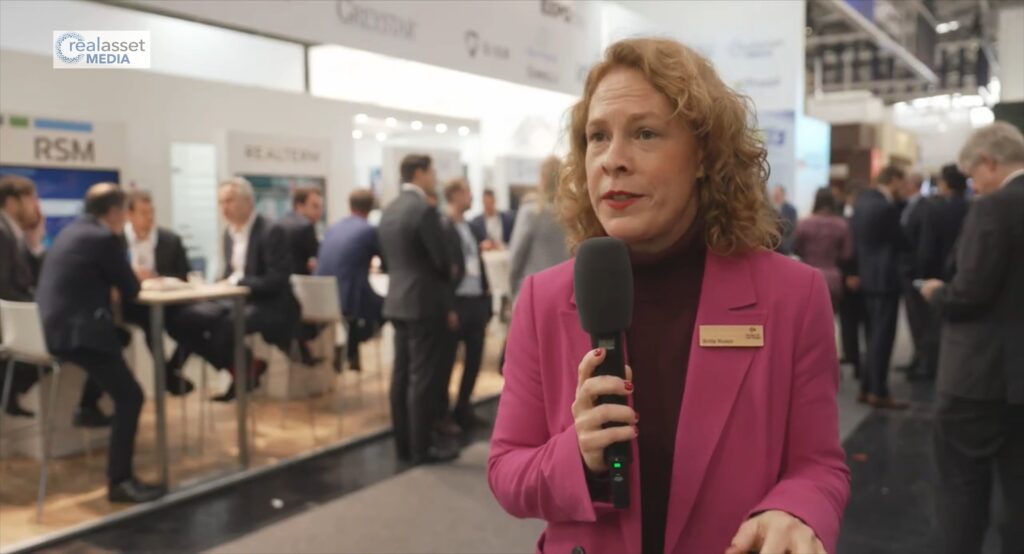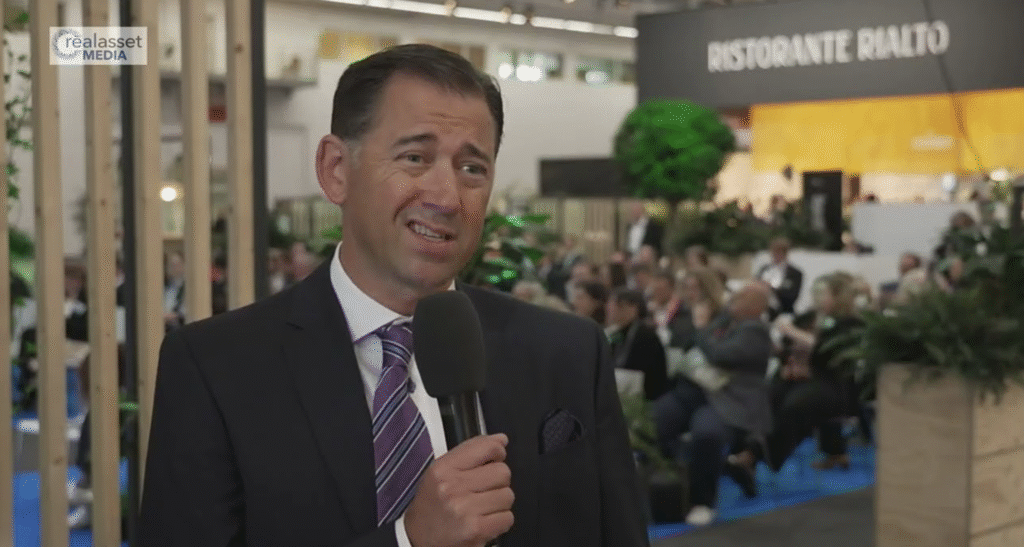Decentralisation and new demand drivers support logistics growth
Joël Gorsele, chief executive officer of Intervest, says Europe’s logistics market is showing signs of renewed confidence, underpinned by decentralised supply chains and new sources of occupier demand.
Speaking to Real Asset Media at EXPO Real 2025, he said stability in macroeconomic and geopolitical conditions has encouraged tenants to restart expansion plans after a period of caution.
“Certain elements have stabilised. Where there was uncertainty in the market, I believe that has now moved from uncertainty to being cautiously positive,” Gorsele said. “It was fantastic to hear that my colleagues also see demand from logistics clients picking up.”
Intervest, a Benelux-based logistics real estate platform backed by TPG, was taken private more than a year ago and is now pursuing growth across France, Germany and Italy. Gorsele said the company remains “fully focused on growth, sustainable growth, and creating value”.
He added that confidence among tenants has improved in recent months: “We have been seeing that since there was more clarity on the US tariffs and also a couple of geopolitical topics that ruled the news were going in a direction of being solved, we see clients being more active on working on their business plan, completing their business plan, and also ready to go forward with their business plan, and that’s great to see.”
According to Gorsele, regionalisation is the key driver now shaping logistics investment and leasing decisions. “We also see decentralised supply chains in terms of spreading those supply chains around and not only focusing on one certain hub, being close to clients, but also focusing on core markets, markets that deliver transparency – not for us from a real estate perspective, but for our clients,” he said.
He pointed to rising stockpiling activity, warehouse take-up, and re-ordering volumes for the first time in over a year. “We see clients being more confident, feeling that things are moving ahead, and that they are ready to move forward and spend more,” he said.
Emerging demand sources are also driving sector expansion. “Say that we had flows of solar panels in the past, we now see the flows of batteries,” Gorsele explained. “We’ll definitely see some demand from defence, and we’ll also see more and more demand from supermarkets that are professionalising and automating a lot of their services to their clients.”
He added that near-shoring — long discussed in industry circles — is now a visible market trend. “We see companies from China moving to Europe and investing into Europe and manufacturing basically in Europe. That will be a trend where also our clients — 3PLs — will take action, too,” he said. “And that will, of course, bring shorter and more resilient supply chains, and it will probably, in the longer term, help Europe as well.”



